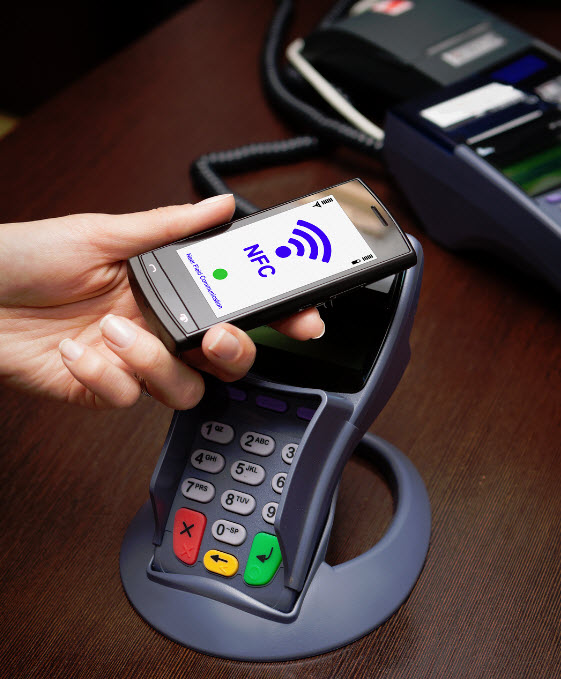ING is preparing to embrace Apple Pay if it is launched in Europe in the near future
Dutch bank ING has begun showing support for Apple Pay. The new mobile payments platform from Apple has yet to launch beyond the United States, but ING is already showing support for payments made from Apple devices. Apple has seen significant promise in the mobile payments space and has responded to the increasing demand for payment services by offering its own. In the few months since Apple Pay’s release, it has become a prominent competitor in the new commerce space.
Apple Pay has yet to become a mainstream success among consumers in the US
Apple Pay launched with the support of thousands of retail organizations and the support of some of the largest financial institutions in the world. Despite this strong support, the platform has yet to become a mainstream success, but it one of the very few mobile payments services that is available for iOS devices. The success of Apple Pay has been growing slowly over the past few months, which may have slowed Apple’s plans to release the service in other countries.
Rumors suggest that Apple Pay may expand into Europe, the Middle East, India, and Africa
 There are rumors that suggest that Apple is preparing to launch Apple Pay in the United Kingdom. Other speculation suggests that Apple is preparing to launch its payment service in the Middle East, India, and Africa as well. The company has not yet announced any definitive plans for doing so, but growing demand for mobile payment services could draw Apple to other countries. In preparation for this potential expansion, banks like ING are beginning to show support for the payment service.
There are rumors that suggest that Apple is preparing to launch Apple Pay in the United Kingdom. Other speculation suggests that Apple is preparing to launch its payment service in the Middle East, India, and Africa as well. The company has not yet announced any definitive plans for doing so, but growing demand for mobile payment services could draw Apple to other countries. In preparation for this potential expansion, banks like ING are beginning to show support for the payment service.
Some banks express concerns about Apple Pay’s security
While many banks have begun to show interest in supporting Apple Pay, others in the United Kingdom have expressed concerns over the security of the platform. Mobile commerce has begun to attract the attention of malicious groups that seek to exploit consumer financial information, and relatively few platforms have the security measures in place to protect this information.
New study shows that NFC payments are becoming more common among consumers in the retail sector
NFC-based mobile payments are on the rise throughout the world, according to a new study from Strategy Analytics. The study highlights the growing adoption and availability of NFC-enabled mobile devices. These devices are equipped with NFC chips, which allow them to engage with interactive marketing materials, share digital information from one device to another, and participate in mobile commerce. As these devices become more plentiful among consumers, people are using them to shop online and purchase products from physical stores.
Study predicts that NFC-based mobile payments will represent $130 billion in global spending by 2020
The study shows that NFC-based mobile payments will account for $130 billion in global consumer retail spending by 2020. This is roughly similar to 254 million mobile consumers making as many as five mobile payments every month of $9 or less. The growing availability of NFC-enabled mobile devices and services is powering this growth in the mobile commerce field. One of the latest services to launch, Apple Pay, is having a profound impact on the growth of NFC-based payments.
Apple Pay helps promote mobile spending through NFC technology
 Apple Pay was launched at the end of October this year, and has since become a prominent payment platform among iOS users. The service launched with the support of a wide range of retail partners, many of whom also adopted mobile point-of-sale systems to accommodate the growing number of those paying for products with their mobile devices. Services like Apple Pay are expected to continue powering the growth of the mobile payments field.
Apple Pay was launched at the end of October this year, and has since become a prominent payment platform among iOS users. The service launched with the support of a wide range of retail partners, many of whom also adopted mobile point-of-sale systems to accommodate the growing number of those paying for products with their mobile devices. Services like Apple Pay are expected to continue powering the growth of the mobile payments field.
Some retailers are unconvinced of the value of NFC technology
Retailers have been relatively slow to embrace NFC technology. The cost of adopting NFC-enabled point-of-sale systems is often seen as too high for some retailers, while others are not yet convinced that mobile commerce is anything but a passing trend. As NFC devices become more popular among consumers, these retailers may change their minds and begin supporting mobile commerce more aggressively.
 There are rumors that suggest that Apple is preparing to launch Apple Pay in the United Kingdom. Other speculation suggests that Apple is preparing to launch its payment service in the Middle East, India, and Africa as well. The company has not yet announced any definitive plans for doing so, but growing demand for mobile payment services could draw Apple to other countries. In preparation for this potential expansion, banks like ING are beginning to show support for the payment service.
There are rumors that suggest that Apple is preparing to launch Apple Pay in the United Kingdom. Other speculation suggests that Apple is preparing to launch its payment service in the Middle East, India, and Africa as well. The company has not yet announced any definitive plans for doing so, but growing demand for mobile payment services could draw Apple to other countries. In preparation for this potential expansion, banks like ING are beginning to show support for the payment service.
 Apple Pay was launched at the end of October this year, and has since become a prominent payment platform among iOS users. The service launched with the support of a wide range of retail partners, many of whom also adopted mobile point-of-sale systems to accommodate the growing number of those paying for products with their mobile devices. Services like Apple Pay are expected to continue powering the growth of the mobile payments field.
Apple Pay was launched at the end of October this year, and has since become a prominent payment platform among iOS users. The service launched with the support of a wide range of retail partners, many of whom also adopted mobile point-of-sale systems to accommodate the growing number of those paying for products with their mobile devices. Services like Apple Pay are expected to continue powering the growth of the mobile payments field.